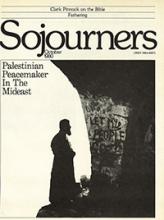So the disciples went off and did what Jesus had ordered; they brought the ass and the colt and laid their cloaks on them, and he mounted. The huge crowd spread their cloaks on the road, while some began to cut branches from trees and lay them along his path. The groups preceding him as well as those following kept crying out: "Hosanna to the Son of David! Blessed is the one who comes in the name of the Lord! Hosanna in the highest!" As he entered Jerusalem the whole city was stirred to its depths, demanding, "Who is this?" And the crowd kept answering, "This is the prophet Jesus from Nazareth in Galilee."
Jesus entered the temple precincts and drove out all those engaged there in buying and selling. He overturned the money-changers' tables and the stalls of the dove-sellers, saying to them, "Scripture has it, 'My house shall be called a house of prayer,' but you are turning it into a den of thieves" (Matthew 21:6-13).
The events of the gospels concerning Jesus in Jerusalem are the most political in all the Bible. Yet growing up in American Christendom, you would hardly know it. The church's habitual ways of reading and responding to the Bible have all but stripped these passages of political content.
These gospel events are rendered innocuous not only by the piecemeal and disconnected fashion with which we read scripture but by the narrowness of our political understanding. My first seminary paper in New Testament was on the triumphal entry. Having devoured the commentaries, I concurred with the conventional scholarly opinion that Jesus was an apolitical messiah. After all, he rejected the Zealot option of violent revolution. After all, he wasn't interested in Caesar's job, or Pilate's. Therefore we conclude: apolitical. The problem with this conclusion is that the varieties of political action are wider than we are taught to imagine.
Read the Full Article

